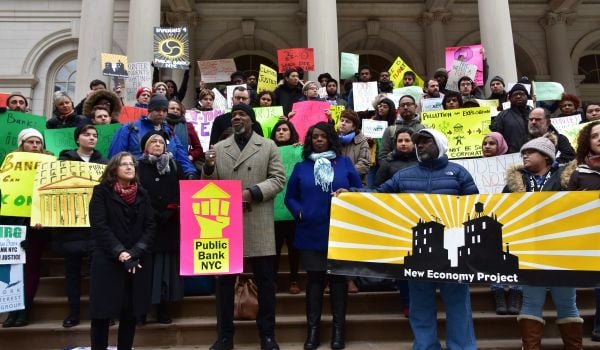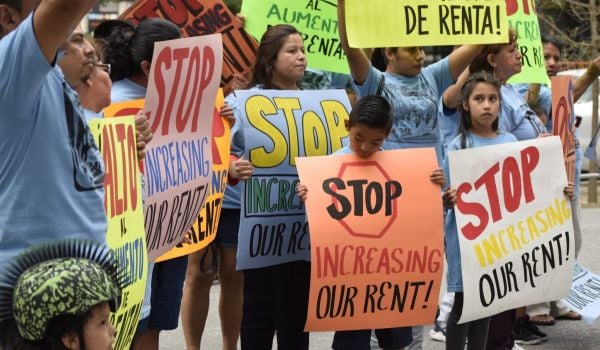It may be time to donate to WNYC again, because you’re going to need that canvas tote.
Five years after outgoing New York Mayor Michael Bloomberg tried to charge fees for plastic bags at stores, a group of council members has banded together to try again.
Democrats Brad Lander and Margaret Chin presented legislation that would charge customers at least 10 cents for every bag — plastic or paper — at the store. The bill, as Dana Rubinstein reported at Capital New York, has seven sponsors but does not yet have the support of Council Speaker (and mayoral candidate) Christine Quinn, who decides which bills are voted for on the floor. As Rubinstein notes, “Plastic bag manufacturers are, unsurprisingly, opposed to the proposal.”
The proposed legislation doesn’t apply to everything. Street carts and restaurants would be exempt, so you can take your biryani back to your desk in a bag with a smiley face on it, don’t worry. And grocers will still wrap meat in plastic bags. If you’re buying groceries with food stamps and didn’t bring your own bag, you won’t be charged, either.
Retail owners will like this proposal more than Bloomberg’s 2008 attempt, as they will be able to keep the 10-cent fee. The previous attempt was a six-cent fee — five cents to the city, one to the owners.
Washington, D.C., charges five cents a bag. Seattle, San Francisco and Los Angeles have implemented similar laws and seen plastic bag use drop as much as 90 percent. But the one thing I’m most enthusiastic about — other than, you know, the environment — is the cost to the city.
Lander’s statement said it costs the city an estimated $10 million to dispose 100,000 tons of plastic bags each year. If it can even reduce the number by, say, 50 percent, it will presumably only spend $5 million to get rid of all those bags. That’s an extra $5 million that can be earmarked for something else, whether it’s improvements to the MTA or education.
The Equity Factor is made possible with the support of the Surdna Foundation.

Bill Bradley is a writer and reporter living in Brooklyn. His work has appeared in Deadspin, GQ, and Vanity Fair, among others.

















